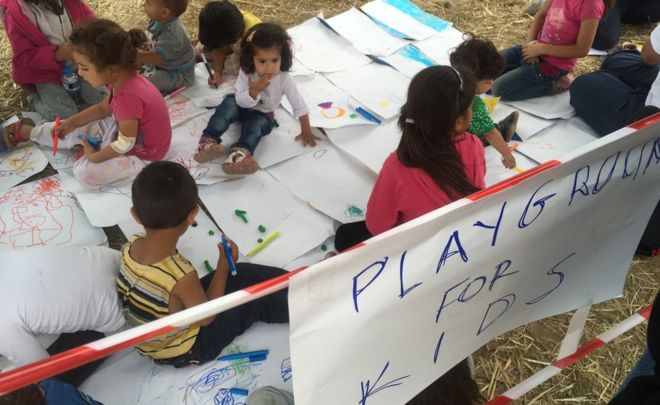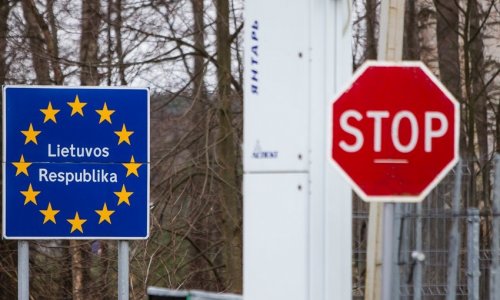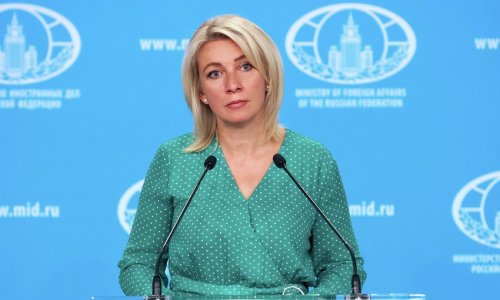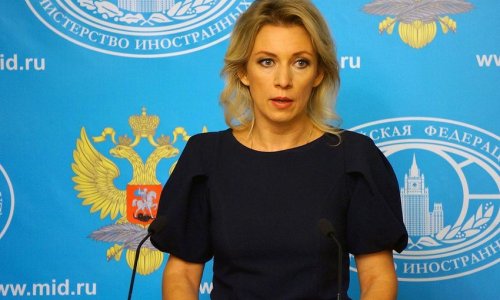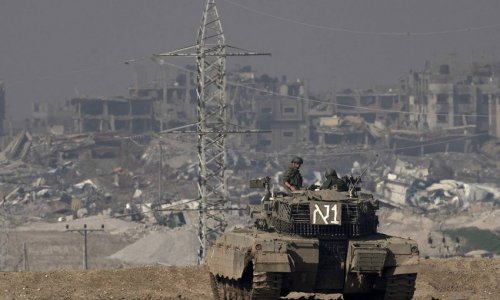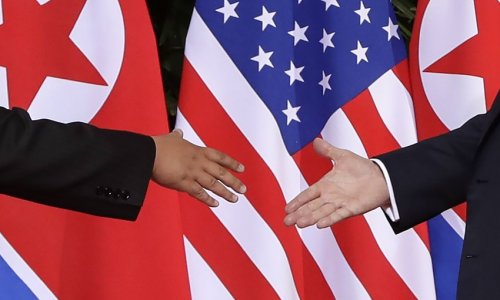They flee a country at war where the West resists any major military or political engagement.
They flee a country where Nato-led forces fought for more than a decade to achieve stability.
The stories of Syria and Afghanistan are two cautionary tales of our time.
Old wars don't end. New ones get worse.
No matter what the world's great powers did or did not do, growing numbers of Syrians and Afghans are taking their future into their own hands. They make up the two largest groups in this mass displacement of people across Europe and beyond.
Never has there has been such an ingathering of people sending the most pointed public message to their own leaders and the world at large: "You failed."
It's the people's version of the Live Aid concert organised by the world's musicians 30 years ago to raise money for the Ethiopian famine.
This time, people are no longer waiting for a more peaceful and privileged world beyond to come to them with aid. They're coming to that better safer place themselves - no matter what it takes.
And as this human stream rushes unabated, it starts to change course and political colour.
Now there are growing numbers of Iraqis, the other major international engagement of the decade past. Eritreans flee well-documented repression, Somalis escape a chronic instability that is now a way of life and even Pakistanis are on the move to get out of harm's way at home.
"Is there a war in Pakistan?" I ask two men who also spill out of a bus packed with Syrians and Afghans when it pulls up to the last muddy crossing in northern Greece on the Macedonian border.
"Bombs are exploding around Lahore," one young man insists, bowing his head to show me what he says is a scar on the back of it.
No easy divide
This seemingly unending flow of people making perilous journeys across the Mediterranean and running the gauntlet across northern Europe underlines how difficult distinctions and decisions will have to be made between refugees with a "well-founded fear of persecution" and those with an understandable desire to seek a better life.
But the neat binary divide between economic migrants and refugees no longer fits a messy world of fragile and failing states and "post-conflict" conflicts.
Many countries, including the United States, Britain and Canada, have made it clear they are now only opening their door to allow in thousands, possibly tens of thousands, more Syrians.
"Its absolutely unfair," Sami Khazi Kani declares as he waits for his turn to cross the last metal barrier manned by Greek police.
He tried and failed a decade ago to get asylum in Britain. When he was deported to Afghanistan his risks only grew when his English language skills landed him a job as an interpreter for US troops. Now he's trying to reach the West again.
"The Taliban are killing us, the Taliban are kidnapping us," he says bitterly. "But the media only broadcast what is happening in Syria."
Taliban attacks are on the rise in Afghanistan but Syria is undeniably the war of our time. It's a country so ravaged that many dare to state the unspeakable: that Syria as we knew it is no more.
This is a place where more than half the population of 22 million people is displaced, dead or a refugee.
It's also described as the largest, most expensive aid operation of modern times.
Even before this current crisis erupted, the world's major aid agencies had repeatedly warned that the global humanitarian system was at breaking point, cracking under the weight of Syria as well as protracted conflicts in the Central African Republic, South Sudan, Iraq and more.
"Burden sharing" has been the buzzword in aid circles for many months with growing calls for wealthy Gulf states to do more and for countries in all corners of the world to play their part.
Some countries are doing more and giving more but even the most high-profile aid operations like Syria keep running out of cash .
"Don't say there is no solution to what is a man-made crisis," Jan Egeland, the head of the Norwegian Refugee Council told me a year ago. "There are more than 190 countries in the world."
(BBC)
www.ann.az
Follow us !

